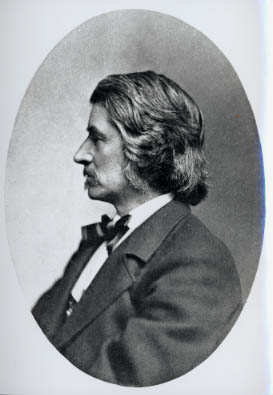Franklin Benjamin Sanborn |
|||
Swami Vivekananda met Sanborn in August 1893. From the JOURNAL Of SOCIAL SCIENCE CONTAINING THE TRANSACTIONS OF THE AMERICAN ASSOCIATION NUMBER XXXI, JANUARY, 1894. SARATOGA PAPERS OF 1893 PAPERS ON ARBITRATION, THE SILVER QUESTION, CRIME AND PUNISHMENT, Etc. PUBLISHED FOR THE AMERICAN SOCIAL SCIENCE ASSOCIATION. DAMRELL & UPHAM, BOSTON , AND G. P. PUTNAM'S SONS, NEW YORK . 1894. EDITED BY F. B. SANBORN GENERAL SECRETARY OK THE ASSOCIATION CONCORD , MASS. ---- GENERAL MEETING OF 1893. The General Meeting of 1893 was held at the new Town Hall in Saratoga , beginning Monday, September 4, and closing Friday, September 8. The opening Paper was by the President, H. L. Wayland, D.D., of Philadelphia, Monday evening, September 4, at 8.00 p.m., on " Compulsory Arbitration." A Debate followed. The Departments held sessions as follows : — TUESDAY, SEPTEMBER 5. Department of Education. WEDNESDAY, SEPTEMBER 6. Department of Finance. 9.30 a.m. Remarks by the Chairman of the Department, Hon. F. J. Kingsbury, of Waterbury , Ct. , on " The Relative Value of the Factors that produce Wealth." 10.00 a.m. A Paper by Col. Jacob L. Greene, of Hartford , on "Bimetallism" 11.00 a.m. A Paper by Dr. Charles B. Spahr, of New York , on " The Status of Silver." 11.30 a.m. A Paper on " The Silver Question of India " by Dr. E. B. Andrews, President of Brown University . 12.00 m. Discussion of the preceding Papers. 4.00 p.m. Meeting of the Council of the Association. 8.00 p.m. An Address by Frederick Peterson, M.D., of New York , on "Recent Progress in Medicine and Surgery." THURSDAY, SEPTEMBER 7. Department of Jurisprudence. FRIDAY, SEPTEMBER 8. Department of Social Economy. 9.30 a.m. Address by the Chairman of the Department, F. B. Sanborn. 10.00 a.m. A Paper on u The Mutual Benefit Societies of Connecticut ," by S. M. Hotchkiss, Esq., of Hartford , Ct. 11.00 a.m. A Report from the Department on "Results of Legislation concerning the Sweating System." 11.30 a.m. Remarks by Vive Kananda, of Madras , and others, on the preceding Papers…. The following is the report by the association on Vivekananda’s comments….(and published in the book).
DEBATE IN THE SOCIAL ECONOMY DEPARTMENT. The papers of this Department were briefly discussed by the members present; but no report was made of the debates, except in the case of a Brahman monk from Madras , who was invited by the chairman to speak of the criticism made by the Rev. S. Barnett on the poverty and public charity of British India . Vive Kananda, the monk mentioned,— who was on his way to the Parliament of Religions in Chicago, where he afterward spoke acceptably on the religion of his nation, being introduced by the chairman, said that the poverty of the people of India could scarcely be exaggerated, and had not been overdrawn by Mr. Barnett; nor was he at fault in criticising the measures of the government, by which the poor were overtaxed. The introduction of British manufactures into India had produced the sad effect of destroying in a great degree the native hand-manufactures; and by this the people were thrown back on agriculture for a subsistence, in circumstances that made it practically impossible to support themselves abundantly. Many of them had but one meal a day, and that of very bad quality oftentimes. The native princes, as a rule, did little to improve this condition; and the English government, though better than formerly in this respect, also took too little care of 280,000,000 of their poorest subjects. What was needed was instruction in modern industries and better modes of living; and his own errand in America was to learn from a people so practical lessons in these matters which he could impart to his people on his return. His life as a monk led him into all parts of India , and he had seen with his own eyes the wretched state of the people. Education was given to the rich, but very seldom to the poor; and such was the incessant toil of their days that they had little time or strength for anything but the supply of their physical wants in the plainest manner. Spiritually, they were well taught by their priests and monks; but, practically, they needed to learn much. The fall in silver had rather benefited than injured the poor; for it had reduced the importation of British manufactures, and given a little more variety to the industries of India* The condition of women in India did not appear to him so bad as the missionaries sometimes describe it. The burning of widows has long been forbidden by English law; yet many widows still commit suicide in other ways, on the death of their husbands, not being allowed to remarry, and finding life hard and poor. The practice of medicine is now common among the native Indians, but the poor could not profit much by that on account of their poverty.* *Vive Kananda had previously spoken in the debate on the Silver Question, in the Finance Department, and was heard on both occasions with great attention, contributing much to the interest of the two meetings which he attended. He still (December 20) remains in the Untied States, though his countryman, P. C Mozoomdar, who spoke at our Saratoga Meeting of 1883, and again visited America this year, has returned to India.
|
- www.vivekananda.net edited by Frank Parlato Jr.
